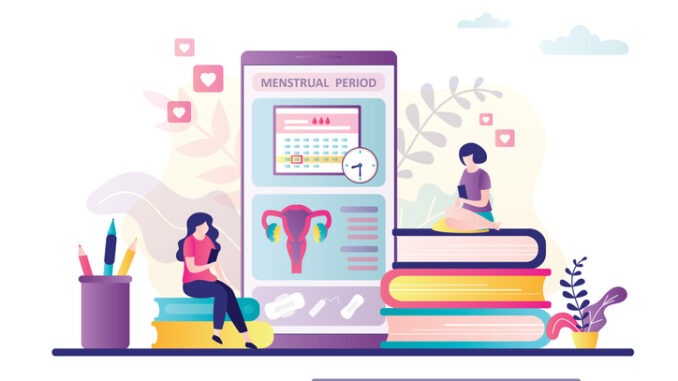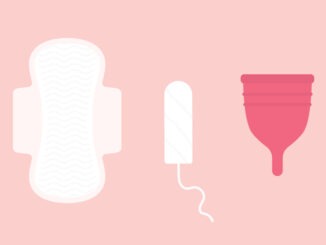
Highlights from the DfE guidance for schools and post-16 education organisations in England on providing free period products for all learners
The period product scheme is available to all state maintained schools and 16-to-19 education organisations in England. It provides free period products to girls and women who need them in their place of study. The scheme is available for organisations to order until July 2024.
To make sure organisations have access to a wide range of period products in the most cost-effective and efficient way, the DfE have a contract with Personnel Hygiene Services Limited (phs). This allows you to order period products and have them delivered when you need them.
Who is eligible
Girls, women, and learners who identify as non-binary or transgender, who have periods may all need to access this scheme. All learners in schools and 16-to-19 organisations should be able to access period products if they need them. This may include, for example, where individuals:
- have forgotten their products;
- cannot afford products;
- have come on their period unexpectedly.
Girls and women under 19 in the current academic year may receive support from the scheme. Women aged 19 or over are only eligible for support if they:
- are continuing on a study programme they began aged 16-to-18 (‘19+ continuers’);
- have an education, health and care plan.
Not covered by the scheme
The scheme does not cover:
- girls and women on higher education qualifications;
- apprentices;
- women who are staff (including supply staff, volunteers and contractors).
How to order products
The DfE’s supplier, phs, will stock and deliver period products. They will also offer customer service support relating to the ordering and delivery of products. You will be able to order a range of period products and have these delivered free of charge. There will be a cap on the amount you have to spend. You can find out how the DfE calculate this and what you will get here; the available budget for your school or organisation will show on the ordering portal.
You can order products using your spend cap, which is your allocation covering the period September 2022 until July 2023; you can order at any point in the year until July 2023. To reduce waste, you should wait until any stocks of existing period products you may have are low before ordering. When ordering products, you should think carefully about the types of products selected and consider the environmental impact of the frequency of deliveries.
In September 2022 you will receive your funding allocation, which you can use to order products up to and including July 2023. The DfE have based this amount on 35% of the number of recorded girls and women in your organisation who, based on age, are likely to have started their periods. This is how your total amounts have been calculated in previous years of the scheme. The 35% is an assumed take-up rate, reflecting the fact that not all girls and women will have a need for products all of the time. This mirrors the assumed take-up rate used in the scheme to provide learners in Scotland with access to free period products.
You can see the amount you can spend for the 2022 to 2023 school year on the phs portal from 8 September 2022. If you have both girls of secondary school-age and girls and women aged 16-to-19, or you are a middle or all-through school, you will receive one spend cap for the year. Spend caps have been set for each organisation within a multi-academy trust. You will be able to track spend against your spend cap throughout the year.
Larger organisations will be able to order up to 25% of their total spend for the year, each time they order. To keep carbon footprint low, each order should have a minimum value of £5. You will be responsible for monitoring and staying within your spend and order caps. The phs portal will ask you to reduce your order if you try to exceed your maximum spend or order cap.
Products available
You will be able to select from a wide range of period products, varying in type, size and brand. When deciding which products to order, you should consider individual needs and preferences. You may want to speak to girls and women about the types of products to keep in stock. You could do this by:
- engaging with student councils;
- holding informal discussions with learners;
- sending out anonymous surveys.
The DfE’s research found that participants thought it was important their views were heard when organisations were making decisions about ordering period products. When choosing products, they would prioritise comfort, familiarity and value for money.
Parents or carers may object to the use of some period products. You should consider the views of girls and women and parents or carers from all religious and cultural backgrounds when ordering products. More information is available in the equality requirements section.
Not all period products are suitable for girls and women with specific disabilities. You should ensure you have methods to gather the views of disabled girls and women, and make suitable products which meet their needs available in your setting.
You must provide safety information for each product in an accessible format, prior to use. Further information is available in the your responsibilities section. You do not need to order the same products throughout the year. You may wish to trial some products in smaller quantities to begin with. The DfE may adjust the product range available to you following feedback and monitoring of purchasing patterns.
Products available
You will be able to order:
- period pads;
- environmentally friendly period pads;
- reusable period pads;
- applicator tampons;
- non-applicator tampons;
- menstrual cups;
- period pants;
- tights.
Where products are sold in packs, the number of products per pack is outlined on the phs portal.
Click here to access the full guide.


Be the first to comment